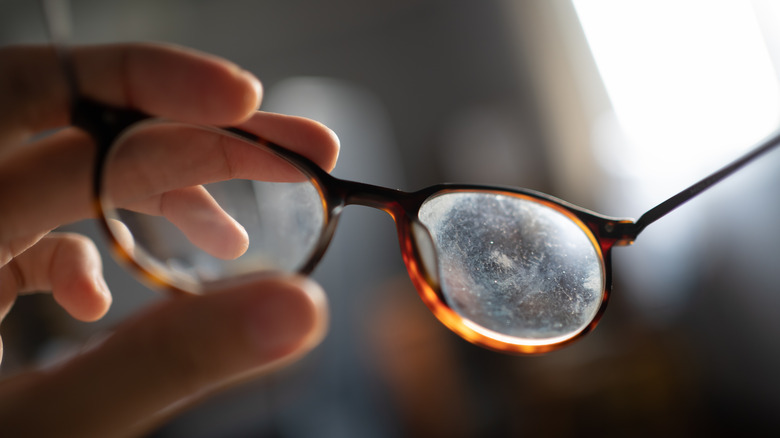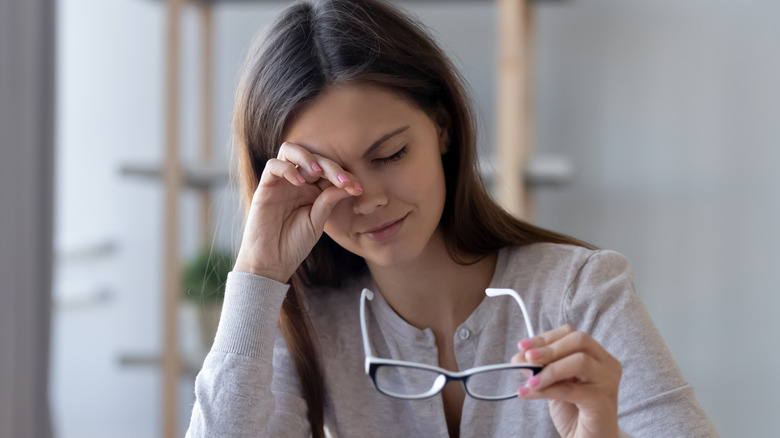What Can Happen When You Don't Clean Your Glasses Enough
About 35% of Americans regularly wear 2 or more pairs of prescription eyeglasses, as reported by The Vision Council. However, this number is expected to exponentially increase by 2050 — 50% of people worldwide are projected to become short-sighted due to ongoing screen usage (via The Independent).
Routine cleaning of eyeglasses is important. However, research from Microban reveals that out of 1,052 people asked, participants clean their glasses less than once a week, on average (via Phillips Eye Specialists). Further testing conducted by Microban found large amounts of bacteria present on 95% of sunglasses and eyeglasses examined. Dirty glasses compromise our vision, and long stretches of time between cleanings make us susceptible to bacteria buildup and infection.
Optometrist Dr. Jonathan Wolfe explained to Healthline that eyeglass lenses should be briefly cleaned once a day and frames should be tended to weekly. Here's the best way to go about cleaning and sanitizing your glasses, and what kinds of infections can develop if you don't.
Dirty eyeglasses can cause various types of bacterial eye infections
Bacteria living on the surface of our eyeglasses can cause infections that affect the eyelids, the outermost layer of the eye, as well as the deeper layers within the eye. According to Phillips Eye Specialists, one such eye infection is bacterial keratitis, which develops in the cornea. It can cause pain, light sensitivity, tearing, discharge, and impact your quality of vision. This type of infection can develop suddenly and requires prompt treatment.
Another common eye infection that can develop is blepharitis, or inflammation of the eyelid. It can lead to crusting, flaking, redness, and a burning sensation, amongst other symptoms (via Phillips Eye Specialists). Dirty eyeglasses can also leave us vulnerable to conjunctivitis, or pink eye, which affects the inside of the eyelid and the outer layer of the eye. Not only that, but even more dangerous types of bacteria could potentially be lurking on your eyeglasses, too.
How to properly clean your glasses
According to a 2018 study published in PLoS One, high concentrations of bacteria were found predominantly on the nosepads and earclips of eyeglasses, with Staphylococcus bacteria among the most common types found.
To keep your glasses clean and sparkling, Healthline says you need no more than 20 seconds. Begin by washing your hands. Then, use distilled water to rinse your glasses in order to wash away any contaminants on the surface of the lenses. Dry your glasses with a microfiber cloth, and hit both sides of your glasses with either a cleaning solution or a dab of dish soap. Give your glasses a rinse, and shake off any dripping water as they dry. For your weekly frame cleaning, the process is similar. Run your frames under warm water as you lather them with a mild soap. Rinse them thoroughly, and finish off by wiping down the nosepads and ear pieces with rubbing alcohol.



